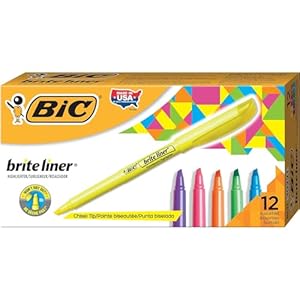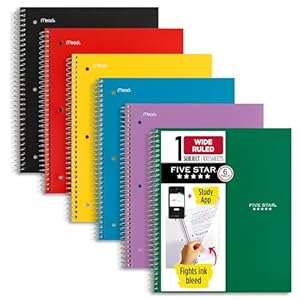contributed by Dr. Kymm Ballard, Govt Director for SPARK
Take into consideration any time you’ve seen “military boot camp” portrayed in popular culture — are you picturing the standard drill sergeant, ordering his troops to do limitless laps and push-ups, as punishment for his or her errors that day?
Now, with that situation in your thoughts, think about it being performed out by youngsters and youngsters in school — and as a substitute of drill sergeants, their academics are on the helm. Imagine it or not, it’s really fairly widespread in sure areas of the nation for academics to have college students do bodily actions as punishment for misbehaving.
Whereas this will have been perceived many years in the past as a method to ‘toughen children up,’ it’s a development that should be falling out of favor by now – significantly when youngsters at present are already much less more likely to be energetic than generations earlier than them.
If you happen to’re a instructor your self, you know the way impressionable college students might be. Reinforcing the concept train equals punishment promotes detrimental emotions in the direction of bodily exercise.
See additionally Dos and Don’ts Of Elementary School Classroom Management
The Drawback with Bodily Punishment
Whereas some really feel that working a number of laps as punishment sounds affordable, this could have an adversarial impact on a toddler’s psyche that lasts for many years. Researchers have discovered that PE teachers and coaches think physical punishment is an effective way to point out college students that there are penalties to their actions; they’re not mistaken, and actually, that’s precisely the issue. Bodily punishment occurs to work just a little too properly.
After we demand bodily activlity to punish misconduct, the message we’re sending — loud and clear — is that bodily train is a really disagreeable exercise, and one thing all of us ought to attempt to keep away from. And, our youngsters are actually listening to it. At a time when not sufficient youngsters (or adults, for that matter) are getting the really useful quantity of every day train, the very last thing we should always do is reinforce the concept bodily exercise is one thing to dread. If children are already looking for causes to be much less energetic, viewing train as a punishment is all of the extra purpose to not do it.
This mentality can carry over into maturity as properly, resulting in an aversion in the direction of bodily train for the remainder of one’s life – naturally pushing an individual within the course of inactivity, weight problems, and different well being issues. The purpose of any bodily educator needs to be to show college students that train is a optimistic and productive method to spend time, reasonably than one thing to insurgent in opposition to.
So as to add to the pile of psychological and bodily well being repercussions of this development, there’s much more severe purpose to not use bodily schooling as punishment: it might be unlawful in your state.
That’s proper. It’s really in opposition to the regulation in 29 states – deemed a type of corporal punishment. The Nationwide Affiliation for Sport and Bodily Training (NASPE) states that “Administering or withholding bodily exercise as a type of punishment and/or conduct administration is an inappropriate apply.”
So whereas your college’s PE instructor or crew coach might imagine it’s completely high-quality to have college students run drills as a disciplinary measure, it is perhaps breaking the regulation – and performing in opposition to the most effective curiosity of the scholars.
Higher Options for Scholar Self-discipline
Lecturers and coaches typically wrestle to seek out strategies for disciplining college students which might be each applicable and efficient. This may increasingly account for why some nonetheless desire to go the route of bodily schooling as punishment; it’s straightforward to dole out, it’s over pretty shortly, and a heavy exercise can put on a scholar out by exhausting them. For the sake of the kids and their future bodily well being habits (to not point out the regulation), academics and coaches ought to keep away from the straightforward route, and try to seek out extra applicable methods to self-discipline the category troublemakers.
On the flip facet of this development, some academics go in the other way, banning misbehaving college students from collaborating in recess; the truth is, 77% of academics forestall youngsters from collaborating in recess with the intention to diminish unhealthy conduct. Sadly, this excessive isn’t perfect, both.
Taking away youngsters’s retailers for train can even skew their notion of exercise and participation. Though the presumption is that youngsters will study that getting train is a privilege (the other of utilizing it as punishment), it additionally eliminates their every day likelihood to work together socially and bodily in school. Researchers have discovered that recess acts a “reset button” for students’ cognitive function, so eradicating it (for any purpose, good or unhealthy) can really set college students up for failure the remainder of the day.
As an alternative, look into disciplinary techniques that don’t contain the specter of overexertion, or pressured physicality. Kids, particularly of their adolescence, want to have the ability to develop their very own boundaries with regards to their very own consolation with bodily exercise. Although it’s good to maintain them transferring – which is why banning recess is a foul thought – pushing them into train underneath detrimental circumstances leaves an enduring impression. The vital factor needs to be to advertise bodily exercise (by means of phys ed courses, recess, and so forth) as a enjoyable and optimistic method to spend time.
If you happen to’re dealing with ongoing points with a scholar and also you’re at a loss, speak to your college directors to see what they advise as applicable punishment. Disciplinary techniques might embrace calling a gathering with the coed’s dad and mom, or assigning detention. Whereas there might be some argument for banning a scholar from collaborating in sport, it may be checked out as a final measure to attempt to curb detrimental conduct.
Make Train Enjoyable, not Fearful
Bodily schooling academics and coaches know, higher than anybody, the significance of bodily exercise for an extended and wholesome life. They’ve devoted their careers to instilling wholesome values in youngsters, and provoking optimistic associations with train. They could not understand that typically, their makes an attempt at self-discipline are performing in opposition to these very values.
Forcing college students to run laps or do push-ups as penance for unhealthy conduct has long-ranging results which will flip them away from bodily exercise altogether. Even simply threatening so as to add additional sit ups, leaping jacks, and drills — whether or not you act on it or not — promotes an unhealthy aversion in the direction of train, as a weapon that can be utilized as a risk.
Hold the deal with exercise as a optimistic and enjoyable pastime, reasonably than one thing to be feared — it’ll go a good distance in the direction of fostering a lifelong love of motion.
4 Dos and Don’t For Bodily Training In The Classroom
Listed here are 4 dos and 4 don’ts for incorporating bodily schooling into the classroom:
Dos
- Do combine brief bodily actions: Incorporate transient motion breaks or workout routines between classes to assist college students keep centered and energized.
- Do promote inclusivity: Guarantee all college students, no matter bodily capacity, can take part in bodily actions by providing modified workout routines or different choices.
- Do hyperlink bodily actions to educational content material: Use movement-based actions to strengthen studying, reminiscent of utilizing bodily video games to apply math or spelling.
- Do encourage teamwork and cooperation: Design actions that promote collaboration and communication amongst college students, fostering social expertise and a way of neighborhood.
Don’ts
- Don’t use bodily exercise as a punishment: Keep away from making college students do bodily workout routines as a consequence for misbehavior, as it could possibly create detrimental associations with bodily exercise.
- Don’t focus solely on competitors: Whereas aggressive video games might be enjoyable, guarantee they’re balanced with non-competitive actions to keep away from alienating college students who might not excel in sports activities.
- Don’t neglect security: At all times prioritize security by offering clear directions, guaranteeing the bodily area is freed from hazards, and supervising actions carefully.
- Don’t disregard particular person variations: Acknowledge that college students have completely different health ranges and skills, and keep away from pushing college students past their limits or evaluating them to 1 one other.
Dr. Kymm Ballard is the Govt Director for SPARK, a division of Faculty Specialty, Inc. Kymm is the previous Bodily Training, Athletics and Sports activities Drugs Guide with the North Carolina Division of Public Instruction. Her skilled experiences embrace service for greater than a decade as a bodily schooling instructor, a number of years as an administrator and the co-developer of North Carolina’s first highschool demonstration college. Kymm’s direct service to youngsters influences her work on the nationwide stage at present. She wrote, advocated for and promoted the Wholesome Lively Kids Coverage of the NC State Board of Training and the state’s Requirements for Bodily Training
Trending Merchandise










